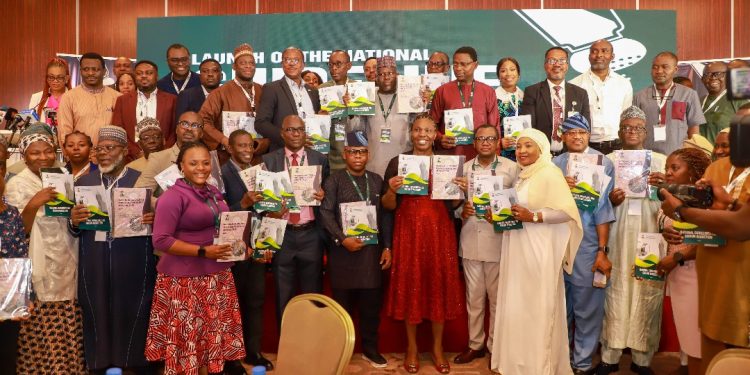The Nigerian government has received widespread support for its recently launched National Guideline for Sodium Reduction, with global health organizations hailing the initiative as a crucial step in combating non-communicable diseases (NCDs) in the country.
The initiative brings Nigeria into a select group of countries worldwide taking significant steps to reduce excess sodium intake, a key risk factor for cardiovascular diseases.
The guideline is the result of collaborative efforts between the federal government and several local and international public health partners, including Resolve To Save Lives (RTSL), Global Health Advocacy Incubator (GHAI), Network for Health Equity and Development (NHED), and Corporate Accountability and Public Participation Africa (CAPPA).

RTSL, a global health organization committed to saving 100 million lives from cardiovascular disease, welcomed the federal government’s initiative during a launch event in Abuja on Wednesday.
Mrs. Okeoma Obasi, Principal Advisor of RTSL Nigeria, emphasized the critical importance of the guidelines, noting that non-communicable diseases are the leading cause of death globally, with cardiovascular diseases alone claiming at least 19 million lives annually worldwide.
“In Nigeria, NCDs pose a significant threat, particularly cardiovascular diseases, which have the highest prevalence among all NCDs,” Obasi stated. She described the sodium reduction guideline as a “commendable move” by the Federal Ministry of Health and Social Welfare.
Mrs. Joy Amafah-Isaac, Country Coordinator for Food and Nutrition Programs in Nigeria at GHAI, highlighted the country’s commitment to reducing population’s sodium intake by 30 percent, a goal initially set in 2018. “It’s amazing to see that Nigeria did not just commit, but they have made giant strides towards achieving it,” she said.
Akinbode Oluwafemi, Executive Director of CAPPA, described the launch as a major milestone in safeguarding public health. “We strongly believe that effective implementation of this guideline will help significantly in reducing excessive sodium intake and cases of cardiovascular diseases and non-communicable diseases in Nigeria,” Oluwafemi added.
The national guideline represents a comprehensive approach to addressing the growing health challenges posed by high sodium consumption. Experts hope the initiative will position Nigeria as a leader in promoting healthy food policies in the African region and demonstrate a strong commitment to improving population health.
RTSL’s Obasi emphasized the broader implications of the guidelines, stating that they represent a crucial step towards creating “a healthier, brighter future for our nation.”
As part of a multi-sectoral effort, the guideline was developed by a technical working group leveraging international best practices and evidence-based research, marking a significant advancement in Nigeria’s public health strategy.

